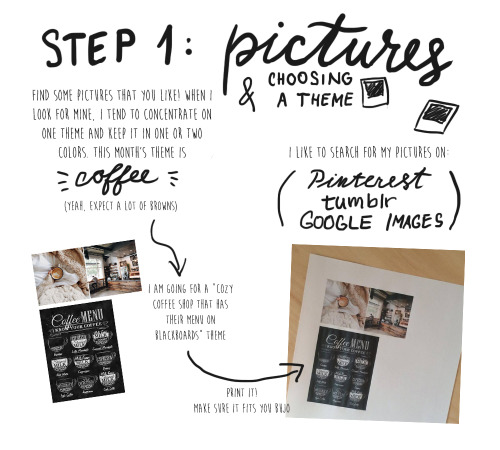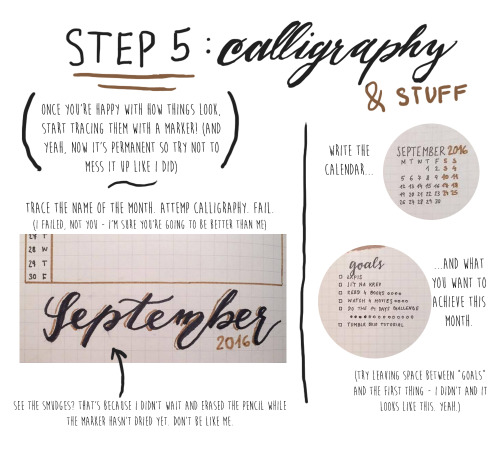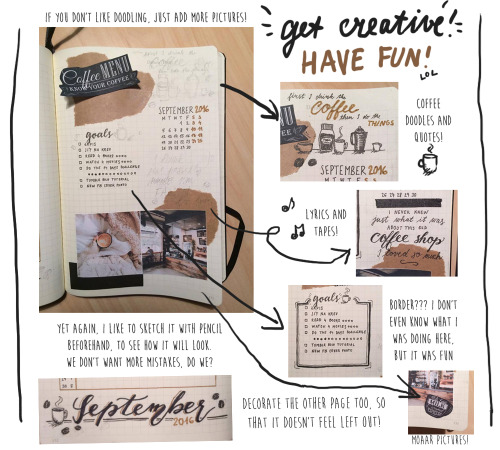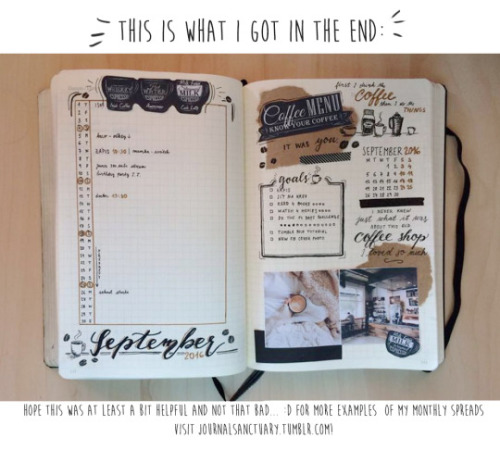This Summer If You Have The Time Off Maybe Try Picking Up A Completely New Language! The Challenge Lasts

This summer if you have the time off maybe try picking up a completely new language! The challenge lasts for however long your summer break lasts and you;
1) pick a completely new language you’ve never studied before
2) make a realistic goal for what you want to achieve out of this time (e.g. reading a beginning book in your target language, maybe having a short conversation with a native/advanced speaker, finishing a Duolingo tree etc)
3) commit to practicing it for a allotted time everyday (it could be 20 minutes to 2hrs everyday what matters is that you stick w/ it!)
4) immerse yourself in that language; listen to music and podcasts, watch movies and tv in your target language, change your tech to the target language-really surround yourself w/ the language
If you decide to take on this challenge make an intro post describing;
who you are
your target language
why you are choosing that language
what your goal is
how long you have for break/summer
tag it with #summer language challenge
Then every week
post abt something related to your target language (e.g. good movie you watched, cool words, accomplishments you made, vocab you learned etc)
post something in your target language (it can be anything)
progress on your goal(s)
tag it with #summer language challenge
At the end of your break make a post abt how you did. Hopefully you’ll have exceeded your expectations and gotten a solid foundation in your target language while having a series of posts that document your journey!
More Posts from Logophile101 and Others

每一個故事都會結束,但是生活中,每一個故事的結束同時也是一個全新的開始。
Every story has an end, but in life, every ending is a new beginning.
HOW TO TEACH YOURSELF LANGUAGES SUPER EFFICIENTLY
I write this bcz I’m a huge language enthusiast and I’m frustrated about the way most methods and language classes/courses approach the process of learning. I’m not a professional but I have a lot of experience in studying foreign languages: I have taught myself Lithuanian and reached the upper intermediate level (B2) in 4-5 years without much help from others, and in Spanish reaching the same level took me only 2 years bcz I simultaneously studied it at school and already knowing French helped me a little. I want to help everyone who wants to start a new language, does not have the possibility to join a language course or just feels frustrated of the stagnation they might experience in the early phase of learning a foreign language.
So, if you want to learn a new language, I suggest following tips:
• Immerse yourself from the beginning! This is really important so that you can get yourself familiar with the intonation and pronunciation of the language. Listen to radio or tv and try to read whatever you can (ingredient lists from the food packages, newspaper articles, whatever!) it doesn’t matter if you can’t understand much yet, it will come! If you start a language with a new alphabet learn the alphabet really well first thing.
• Get an overview of the grammatical structure of the language! This is often not properly done in language courses where you learn some vocabulary and greetings but after 60 pages of the textbook you still have no idea how many verb tenses or noun cases the language has. Take a look even at the “hardest” topics, bcz they might not be that hard after all. (for example the Spanish equivalent of past perfect is much easier than the present tense)
• With that being said, learn to recognise past tenses even when you are still learning the present tense! I find it absurd that most courses expect you to master present tense _perfectly_ before even taking a look at other tenses. Most of the time, in everyday communication, past tenses are used more frequently than the present tense + in some languages mastering the past tense can also help you to form the conditional. So, learn the past tense earlier than most ppl would recommend!
• In general, study the easiest things first! If you find something particularly difficult you gain more confidence and knowledge if you first focus on what you find more interesting (however, you can’t postpone studying boring topics eternally, especially if you are preparing or hoping to prepare for an exam at some point) In Lithuanian, I taught myself a lot of grammar before learning how to tell the time… and it was ok.
• For material: usually the country’s universities have a reading list on their website which proposes what books one could use to study the language. These are often preferable to handbooks aimed for tourists and some language methods for beginners because those mostly focus on useless vocabulary you might only need when you rent a car or book a room in a hotel. The grammar is often also relatively poorly explained in those “tourist language books”, whereas books that are aimed at immigrants or university students usually focus more on the efficient language acquisition and are written by professors and specialists. If you are persistent enough and google all possible search words in both English and the target language, you can probably find whole textbooks in PDF format, which you can then save on your laptop.
• Don’t get stuck on vocabulary! Remember that grammar is the skeleton of the language and that vocabulary is the muscles hair and eventually the clothes you use to dress up and embellish your apperance. Vocabulary is useful once you know how to use it. For me, learning vocab is the hardest part of a new language, especially bcz I like starting languages that are not really similar to any other languages I know (consider Lithuanian and Greek when I previously knew Finnish, English, French and Spanish) ofc you need to learn some of it to be able to form sentences but most traditional methods focus on that too much. My suggestion is to read a lot: start by children’s books and comics and gradually get more advanced material. When you read them, make notes!! Look up the words you don’t know and don’t be afraid of using unconventional, seemingly challenging ways to learn, such as buying a bilingual poetry collection and trying to decipher what the original poem says and compare it to the translation. 100% recommend, even for the beginner level + it’s a nice way to connect to the culture but still focus on the language itself, not on the way ppl make breakfast in that country. (That’s something that irritates me a lot in most Youtube’s language videos where ppl are just discussing the traditions of the country in English when you had come there to look for the explanation of grammatical structures or just to hear the language being spoken. smh.)
• A really important thing about vocabulary is to learn all the abstract words, such as conjunctions, really soon! For example, if you find yourself in a situation where you have to use the words therefore and otherwise, it is almost impossible to try to explain those words without first translating them to another language.
• Make vocabulary learning more interesting and deep by learning about the etymology of the words you learn. It can be mind-blowing and it helps you to remember the words better.
That’s it!
I hope these tips inspire you in pursuing your interest in foreign languages and facilitate your learning process. I might add more to this if I remember I have forgotten something of great importance.











Hey! I am really late with this, but I though that some of you might like to see how I make my monthly spreads. I did this sort of “infographics” (??? am I even allowed to call this thing infographics??) and even though it looks like this, I had so much fun making it :D. I really don’t know whether this is helpful or not, I tried. In case you’d like to see more tutorials (and hopefully better ones) in the future, let me know please? And thanks if you read it till the end, it’s so long :D
(I totally ran out of space for pictures at the end lol)
the best language learning thing is when you learn a really simple grammar rule and it completely transforms your vocabulary
HOTPOT VOCAB 火锅词汇

火锅 (huǒguō) hotpot
鸳鸯锅 (yuānyang guō) two broth hotpot
白锅 (báiguō) non-spicy broth
红锅 (hóngguō) spicy broth
蘸酱 (zhànjiàng) dipping sauce
做调料 (zuò tiáoliào) pick out sauce
肉 (ròu) meat
海鲜 (hǎixiān) seafood
蔬菜 (shūcài) vegetables
土豆 (tǔdòu) potato
冻豆腐 (dòng dòufù) frozen tofu
菌类 (jùnlèi) mushrooms (refers to all fungus)
面条 (miàntiáo) noodles
粉条 (fěntiáo) vermicelli
爽 (shuǎng) refreshing
嫩 (nèn) tender
饮料 (yǐnliào) beverage
熟 (shú) to cook
煮 (zhǔ) to boil
开了 (kāi le) boiling
拿 (ná) to take
放 (fáng) to place
边 (biān) side
热性 (rèxìng) heating foods (traditional Chinese medicine)
凉性 (liángxìng) cooling foods (traditional Chinese medicine)
上火 (shànghuǒ) to suffer from too much internal heat (too much yang or heating foods have been eaten. Said to cause acne, indigestion, sore throat etc)
降火 (jiànghuǒ) to decrease internal heat
Feel free to add on! I’m not too familiar with traditional Chinese medicine but hope this helped.

没有斗争,就没有进步。
If there is no struggle, there is no progress.
弗雷德里克‧道格拉斯 Frederick Douglass

好好活、多多爱、常常笑。
Live well, love much, laugh often.

不要在畏惧中失去自我。
Don’t lose yourself in your fear.
26 Reminders for Going to School Like a Badass
1. Your attitude dictates your experience, so start finding things to get psyched about.
2. Stock up on healthy snacks in your house!!! You’ll be glad you did when the study-munchies roll around (and they always do).
3. Invest in a good planner. Especially if you take part in multiple extra-curriculars, I can’t stress how helpful it is having a place to check back on deadlines and big events.
4. Write down all your teachers’ names and emails as soon as you get them, so you’re not searching for them when you’re absent.
5. No one is having as much fun as their snapchat story makes it seem.
6. Don’t believe what your peers tell you about tests they take before you, study how much YOU need to.
7. Be nice to your math teacher. Partial credit on math problems might save your grade.
8. Don’t throw out syllabuses/first day handouts!!!! Theres a good chance they have information on the late policy and a gazillion other helpful things.
9. In fact, try to hold on to as many papers as you can for when finals inevitably attack.
10. No one knows you wore those jeans yesterday.
11. Be conscious of how you smell. Don’t be B.O. kid, but also try not to suffocate your lab partner with the scent of artificial fruit/flowers.
12. That cookie in the cafeteria is probably not worth 95 cents. Pack snacks from home to resist overpriced school treats.
13. If you’re carrying around a travel mug of coffee, people will usually leave you alone.
14. Don’t spend more time planning your study schedule than actually studying. Just get your books out and do it.
15. Never underestimate the amount of motivation you can get from watching Legally Blonde (movie or musical).
16. Try to attend at least one school sporting event per season, even if thats not really your scene. Some teachers even offer extra credit for going to big games!
17. Don’t be that kid that asks the teacher when you’re getting your tests back. They have like a gazillion to grade. You’ll get them when they’re done.
18. Have a pump-up playlist for the ride to school and the walk to your first class. Nothing feels more badass than walking through crowded hallways while listening to Halsey’s “New Americana”.
19. Set up a back-up study zone for when you need a change of pace.
20. Don’t put off creative projects because you think they’ll be less time consuming. There’s nothing worse than glitter gluing a scale model of the U.S. Senate at 3 AM because you thought it would be quick and easy.
21. That extra 10 minutes of sleep is not worth the risk of oversleeping completely. Get up, splash your face with some cold water, and get this show on the road.
22. Find a school inspiration, whether it be a really hardworking friend or a studyblr you follow. Check their progress whenever you need motivation.
23. If someone only ever talks to you when they need to copy the homework, they’re using. Don’t indulge them.
24. Doing your own work is so SO important. Plagiarism can destroy careers.
25. Creative outlets can be so refreshing, like a diary, a private tumblr, a sketchbook, whatever floats your boat.
26. When all else fails, remember how lucky you are to be getting an education. School isn’t a punishment, its an opportunity for you to create a kick-ass foundation for the rest of your life.
Turns and Steps, Explained (2/2)
Hey guys *cheerful wave* Wimbledon is over so my tennis obligation is done with and now I’ll resume my full-time figure skating follower status. I’ll kick things off with the second part of this turns and steps explanation. This post will touch on a couple of concepts we’ve discussed in the first part so you might want to check that one out before diving in: here it is.
The ISU technical handbook defines 6 types of steps: toe step, chassé, mohawk, choctaw, change of edge, and cross roll. Out of these 6, the only step that is considered difficult is the choctaw. Now if you recall from the previous post, the ISU also defines 6 types of turns (twizzle, bracket, loop, counter, rocker, three-turn). Among these 6, only the three-turn is considered basic, the other 5 are all counted as difficult. At this point I guess you’re naturally wondering why there is such an imbalance between turns and steps. Well, that is because a turn, by definition, must be done on one foot, while a step would normally involve two-footed skating, and that is something we don’t want to see too much of. In fact, the ratio of one-footed to two-footed movements is one of the most reliable indicators of a skater’s skating skills.
That said, let us check out what each of the 6 types of steps looks like. This time, to switch things up a bit, I’m going to use Seimei as illustration.
Keep reading
-
 saturnwer reblogged this · 8 months ago
saturnwer reblogged this · 8 months ago -
 pwlyglot liked this · 1 year ago
pwlyglot liked this · 1 year ago -
 visualiserofvisuals liked this · 2 years ago
visualiserofvisuals liked this · 2 years ago -
 shaaaablr liked this · 3 years ago
shaaaablr liked this · 3 years ago -
 imyhudson liked this · 3 years ago
imyhudson liked this · 3 years ago -
 sarahstudieschem liked this · 3 years ago
sarahstudieschem liked this · 3 years ago -
 mistercuttlefish liked this · 4 years ago
mistercuttlefish liked this · 4 years ago -
 productivelittlebee reblogged this · 4 years ago
productivelittlebee reblogged this · 4 years ago -
 sidyll liked this · 4 years ago
sidyll liked this · 4 years ago -
 icanalwayschangeitright reblogged this · 4 years ago
icanalwayschangeitright reblogged this · 4 years ago -
 icanalwayschangeitright liked this · 4 years ago
icanalwayschangeitright liked this · 4 years ago -
 sparklygladiatorcherryblossom liked this · 4 years ago
sparklygladiatorcherryblossom liked this · 4 years ago -
 szmaterling liked this · 4 years ago
szmaterling liked this · 4 years ago -
 nekojita-studies liked this · 4 years ago
nekojita-studies liked this · 4 years ago -
 dusthoneys liked this · 4 years ago
dusthoneys liked this · 4 years ago -
 sophisticatedword liked this · 4 years ago
sophisticatedword liked this · 4 years ago -
 noodlerie liked this · 4 years ago
noodlerie liked this · 4 years ago -
 silhouette-of-sarah liked this · 4 years ago
silhouette-of-sarah liked this · 4 years ago -
 study-with-wastel liked this · 4 years ago
study-with-wastel liked this · 4 years ago -
 domtworryboutitplz reblogged this · 4 years ago
domtworryboutitplz reblogged this · 4 years ago -
 sunday-aloe liked this · 4 years ago
sunday-aloe liked this · 4 years ago -
 katros reblogged this · 4 years ago
katros reblogged this · 4 years ago -
 katros liked this · 4 years ago
katros liked this · 4 years ago -
 cryingsoidontdie liked this · 4 years ago
cryingsoidontdie liked this · 4 years ago -
 darekaposts liked this · 4 years ago
darekaposts liked this · 4 years ago -
 23-crackers-and-a-bit liked this · 4 years ago
23-crackers-and-a-bit liked this · 4 years ago -
 ataraxiaandserenity liked this · 4 years ago
ataraxiaandserenity liked this · 4 years ago -
 crazypurplesugarrush reblogged this · 4 years ago
crazypurplesugarrush reblogged this · 4 years ago -
 eliott-dreams reblogged this · 4 years ago
eliott-dreams reblogged this · 4 years ago -
 eliott-dreams liked this · 4 years ago
eliott-dreams liked this · 4 years ago -
 marenblr liked this · 4 years ago
marenblr liked this · 4 years ago -
 spacedummo liked this · 4 years ago
spacedummo liked this · 4 years ago -
 lesbi-lance liked this · 5 years ago
lesbi-lance liked this · 5 years ago -
 kkeet liked this · 5 years ago
kkeet liked this · 5 years ago -
 imspartawssem liked this · 5 years ago
imspartawssem liked this · 5 years ago